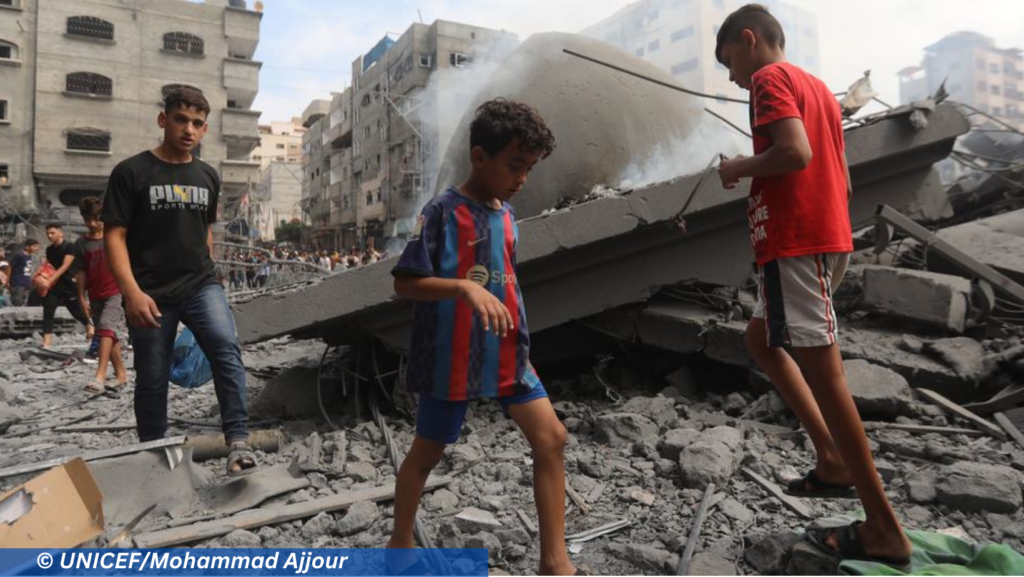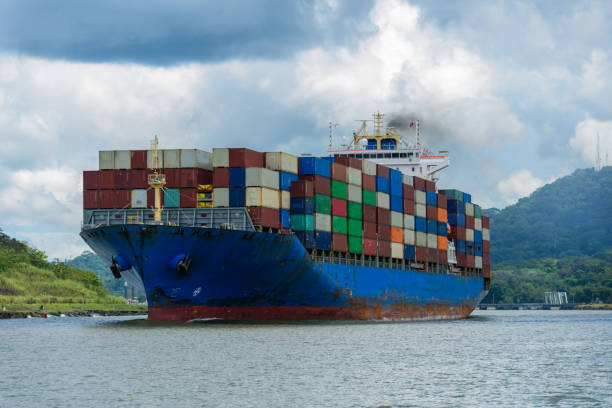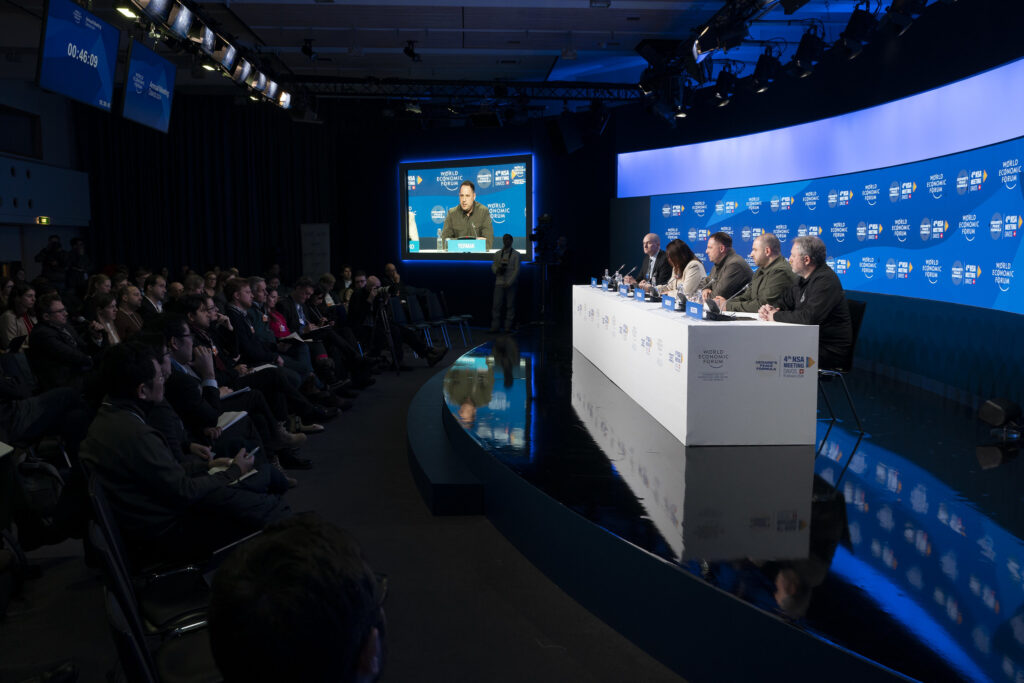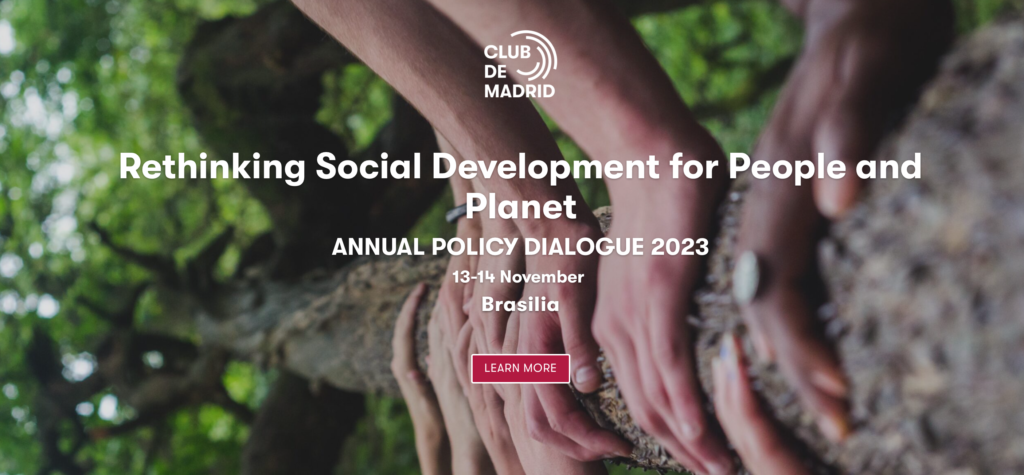Four-year EU-funded project offers roadmaps for key industry sectors: renewable energy, mobility, and electric and electronic equipment, and advice to governments, civil society. Special cases: Latin America, Africa, China. Experts have delivered a sweeping prescription to governments, civil society and industry for a globally coordinated approach to the responsible sourcing of raw materials needed to achieve a circular green economy. In a report, the four-year EU-funded RE-SOURCING project proposes adopting a global vision of a circular economy and reduced resource consumption by 2050 and outlines a series of interim milestones and targets for three key industrial sectors: renewable energy, mobility, and electric and electronic equipment.
The report https://bit.ly/3uqXlqT acknowledges that several firms and governments are showing leadership to address troubling global environmental, social and economic issues, including: Biodiversity and habitat protection, land, air and water pollution, climate change; Access to clean water, air & health care, gender equality, human rights, respecting land rights, labour rights, and safeguarding the artisanal and small-scale miners; Corruption and money laundering, promoting sustainable growth and development, and enabling national / local industrial development.
At the same time, they underline that “the corporate behaviour that existed in the preceding century is no longer acceptable. More responsible and sustainable practices need to be undertaken and evidenced.”
The report adds that the underlying message from wide-ranging stakeholders is that “industry and its supply chains must incorporate and reflect societal values in their operations and business management” and “power imbalances, where they impede the ability of a group to affect the decisions that impact them, need to be addressed.”
Lead author Masuma Farooki says achieving responsible sourcing begins with a universally accepted definition, as well as commonly agreed targets for 2050:
(1) A circular economy and decreased resource consumption, (2) Meeting the Paris Agreement climate goals and environmental sustainability, (3) Social sustainability and responsible production, (4) Responsible procurement, (5) Level-playing field and international cooperation.
International cooperation, the report notes, means helping companies, regions, and countries improve practices and achieve agreed standards. A level playing field “is paramount for achieving all other targets.”
The report strongly underlines the need to address the power imbalance between local communities, workers and other affected stakeholders in decision-making, enabling their meaningful participation in decision-making.
Transparency is also fundamental. Consumers need to know how the elements of the products they buy are obtained, with adequate information to enable their choosing sustainably-sourced products.
Key points in the report include: Companies should not pass along to communities and workers the costs of pollution, land degradation and other negative impacts of corporate activities.
To reduce corruption and the financing of violence that have often accompanied extractive activity, transparency is needed in financial payments and material flows in supply chains.
Standards and guidelines based on multi-stakeholder consultations, as well as certification schemes, and government regulations and legislation, are needed, with several model examples from the US and Europe cited
Among many recommendations to policymakers: Strengthen international cooperation to develop harmonized mining standards for responsible extraction. Enable responsible mining in Europe (no more ‘burden-shifting’ to other regions) Update mining regulations based on existing voluntary certification schemes. Eco-design policies for solar PVs and wind turbines. Lower taxes on, and give preference to, goods manufactured with higher social and environmental standards.
Recycling: Support recycling activities and create markets for secondary raw materials. Require Life Cycle Assessments for all new technologies/products. Develop and implement environmental regulations for wind turbine and solar PV manufacturing and recycling.
Wider Policy: Harmonize environmental policies of EU Member States and coordinate responsible sourcing reporting criteria. Protect human rights defenders and support civil society capacity building. Make supply chain due diligence mandatory for all. Ensure that raw materials and products imported from outside the EU fulfill the same sustainability requirements as operations inside the EU.
Recommendations to industry include:
Mining: Fleet electrification and decreased energy intensity. Plan for mine closure from the beginning of project development. Support local procurement.
Manufacturing: Include eco-design from the beginning of product development to improve recyclability. Include ‘social life cycle assessment’ in product development. Firmly eliminate modern slavery and forced labour in the supply chain of solar PV and wind turbines.
Recycling: Improve collaboration between supply chain stages, research, and academia to substitute non-recyclable materials.Cooperate with other sectors to improve reuse of non-recyclable materials.
Corporate strategies: Environment and climate reporting, including greenhouse gas accounting and reporting for the entire supply chain. Tailor-made climate protection projects. International application of environmental and social standards.
The report provides specific roadmaps and recommendations for policymakers and companies in the renewable energy, mobility sector, and the electronic product sectors.
It also takes a special look at three regions:Latin America, Africa, and China.
Latin America mining projects can face particularly strong opposition from local communities. According to the Environmental Justice Atlas (EJAtlas 2023), 45% of reported conflicts worldwide are in Latin America, where projects are often located near sensitive, biodiverse ecosystems, many of which are home to vulnerable communities.
A key regional priority, therefore, is “strengthening of social capital and civil society trust in the mining sector with focus on the local communities.”
African regional challenges include “trustful and transparent collaboration” by industry, local governments, and others. “If the mining sector, communities, supply chain and governments work together, the outlook for the industry on the continent will be bright.”
Among other key considerations for Africa: supporting and improving artisanal and small-scale mining operations, which plays a crucial role in obtaining many raw materials essential for the green transition.
China, meanwhile, dominates the critical green-energy technology minerals supply chain with rising investments abroad. A recent report associated China, however, with over 100 human rights abuses, environmental harms, workers’ rights violations and other allegations over the past two years in Indonesia, Peru, Congo, Myanmar, Zimbabwe and other countries.
It also notes China’s creation of guidelines to align companies’ due diligence with international standards. The report adds that similar allegations are made against mining operations linked to Canadian, USA, UK, Australian and European companies and investors. In the end, the report cautions, “the findings just underline growing concerns that the green transition to renewable energy is repeating unjust business practices that have long dominated fossil-fuel and mineral extractions.”
Comments:
Stefanie Degreif, OEKO Institute, Germany: “Significant and systemic changes are needed now and over the next decades to achieve climate targets and make the lithium-ion battery chain more responsible and sustainable. There is no time to waste – we need to act now! Changes are needed and cannot be postponed to the next generation or next legislation period.”
Andreas Endl, Vienna University of Economics and Business (WU), Austria: “Over the course of the last four years, we investigated closely and informed decision makers about the fast-moving and immensely dynamic discourse on responsible sourcing. While progress has been made on many fronts with stricter legislation and successful business cases, we still have to go a long way to improve the livelihoods of affected people and respect the integrity of the environment.”
Michael Tost, Montanuniversität Leoben, Austria: “A sustainable energy transition can be successfully achieved only if all actors including policy makers, industry, and civil society realize their responsibility in openly discussing and engaging with affected communities to create trust.”
Shahrzad Manoochehri, World Resources Forum Association, Switzerland: “Due to the complexity and interconnected nature of mineral value chains, achieving responsible sourcing at a global level requires mutual understanding, a fair competitive environment, and the establishment of shared common goals that are respected by all stakeholders across different regions.”
Background: In 1998, amid mounting internal and external pressures, nine international mining companies united to establish the Global Mining Initiative. Their goal was to understand and transform their operations per societal expectations. A surge in community discord, violent incidents, opposition to mining projects, accusations of corruption and bribery, and the threat of nationalization by host governments had pushed these companies to act. Reputational damage and share price concerns further fueled their drive for change.
Simultaneously, international policy and politics began to emphasize securing a sustainable future and acknowledging the dire consequences of environmental damage.
Consumer awareness and citizenship advocacy also started pushing for more sustainable public policies, making the environmental agenda a central political topic. Businesses and investors, initially slowly and later in growing numbers, began to prioritize sustainable sourcing practices within their supply chains.
Addressing corruption and bribery in the extractive sector became a significant government issue. This collective but not necessarily coordinated movement aimed to transform behaviours. in the extractive sector and its associated supply chains.
Today, the green transition and the shift toward renewable energy, heavily relies on mineral consumption. However, the adverse impacts on ecosystems, human rights, and economic inequality are no longer acceptable. The mining sector and its associated supply chains are steadfastly committed to becoming more responsible in their operations, with sustainability as a core objective.
Responsible sourcing (RS) practices have emerged as a vital tool in achieving these objectives and minimizing negative impacts within mineral supply chains. By 2023, RS is no longer a distant ideal but a practical reality for businesses and policymakers, and it is increasingly demanded by Civil Society Organizations (CSOs).
To tackle the growing challenge of implementing RS, the RE-SOURCING Global Stakeholder Platform was initiated in 2020. Funded under the European Union’s Horizon 2020 program, this four-year project, coordinated by the Institute for Managing Sustainability at the Vienna University of Economics and Business Administration, assembled international partners within and outside the EU to create the RE-SOURCING Platform, including OEKO Institut (Germany), World Resources Forum Association (Switzerland), Montanuniversität Leoben (Austria), Tallinn University of Technology (Estonia), MineHutte Intelligence (UK), SOMO (Netherlands), WWF (Germany), EIT Raw Materials (Germany), Luleå University of Technology (Sweden, AHK Business Center (Chile) and SRK Consulting (South Africa).
The project’s vision was to advance the understanding of RS as a mandatory requirement in mineral supply chains among EU and international stakeholders. This involved fostering the development of a globally accepted definition of RS, facilitating the implementation of RS practices through knowledge exchange, creating visions and roadmaps and Good Practice Guidance for three key EU sectors – renewable energy, mobility, and electronics – and advocating for RS in international political arenas.
The RE-SOURCING Project focused on: Facilitating a globally accepted definition of RS.Brainstorming incentives to support RS and responsible business conduct.
Enabling exchanges of information and promoting RS among stakeholders.
Fostering the emergence of RS in international political.
Supporting the European Innovation Partnership on Raw Materials.
Outputs of the RE-SOURCING Project were tailored to:EU and international business stakeholders: Increased capacity of decision-makers to implement responsible business conduct.
Better understanding and awareness of RS in three key sectors: renewable energy, mobility, and electrical and electronic equipment.
Facilitated implementation of lasting and stable sectoral framework conditions for RS.
EU policymakers: Increased capacity for RS policy design and implementation.
Innovative ideas on policy recommendations for stimulating RS in the private sector. Better understanding and awareness of RS in three key sectors: renewable energy, mobility, and electrical and electronic equipment.
Civil society: Integration of sustainable development and environmental agendas into the RS discourse.
Establishment of a global level playing field for RS in international political fora and business agendas.
Enhanced understanding and awareness of RS in three key sectors: renewable energy, mobility, and electrical electronic equipment.
Throughout the project, numerous reports, executive summaries, policy briefings, Good Practice Guidance, workshops, events, and webinars were conducted, ultimately informing a final report.
The move to responsible sourcing is now an integral part of the global conversation on sustainability, and it’s reshaping the way industries operate and impact the world.
According to the report: “The proposed RS framework is adaptable and allows for diverse pathways based on regional priorities. It aims to coordinate and consolidate various RS approaches without losing their unique features, providing a common destination while accommodating different speeds of progress.”
The report presents “a Rights-Based Approach framework for responsible sourcing in mineral supply chains, aiming to consolidate and align existing approaches, promote international cooperation, and ensure equitable distribution of benefits while accommodating regional variations.”
* * * * *
Media contacts:
Shahrzad Manoochehri, shahrzad.manoochehri@wrforum.org
Terry Collins, +1-416-878-8712 (m), tc@tca.tc
Masuma Farooki, masuma.farooki@minehutte.com
Alexander Graf, alexander.graf@wu.ac.at
Terry Collins & Assoc. | www.tca.tc | @TerryCollinsTC | LinkedIn.com/in/terrycollins, Toronto, M6R1L8 Canada
United Nations correspondent journalists – United Nations correspondent journalists – United Nations correspondent journalists – United Nations journalism articles – United Nations journalism articles – United Nations journalism articles – United Nations News – United Nations News – United Nations News










